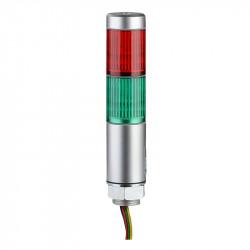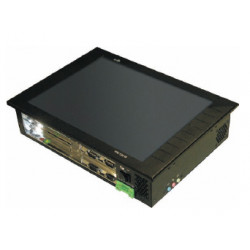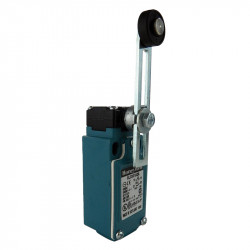Трябва да сте влезли в
-
moreX
-
Компоненти
-
-
Category
-
Полупроводници
- Диоди
- Тиристори
- Електроизолирани модули
- Изправителни мостове
-
Транзистори
- Транзистори | GeneSiC
- Модули SiC MOSFET | Mitsubishi
- Модули SiC MOSFET | STARPOWER
- ABB SiC MOSFET модули
- IGBT модули | MITSUBISHI
- Транзисторни модули | MITSUBISHI
- MOSFET модули | MITSUBISHI
- Транзисторни модули | ABB
- IGBT модули | POWEREX
- IGBT модули | INFINEON (EUPEC)
- Полупроводникови елементи от силициев карбид
- Go to the subcategory
- Драйвeри
- Силови блокове
- Go to the subcategory
- Електрически преoбразователи
-
Пасивни компоненти (кондензатори, резистори, предпазители, филтри)
- Резистори
-
Предпазители
- Миниатюрни предпазители за електронни системи серия ABC и AGC
- Бързи тръбни предпазители
- Закъснителни вложки с характеристика GL/GG и AM
- Ултрабързи стопяеми вложки
- Бързи предпазители британски и американски стандарт
- Бързи предпазители европейски стандарт
- Тягови предпазители
- Високоволтни предпазителни вложки
- Go to the subcategory
-
Кондензатори
- Кондензатори за двигатели
- Електролитни кондензатори
- Кондензатори тип snubbers
- Кондензатори за мощност
- Кондензатори за DC (постояннотокови вериги)
- Кондензатори за компенсиране на мощност
- Високоволтови кондензатори
- Кондензатори за индукционно нагряване
- Кондензатори за съхранение на импулси и енергия
- DC LINK кондензатори
- Кондензатори за AC/DC вериги
- Go to the subcategory
- Филтри EMI (против смущения)
- Суперкондензатори
-
Защита от пренапрежение
- Защита от пренапрежение за коаксиални приложения
- Защита от пренапрежение за системи за видеонаблюдение
- Защита от пренапрежение за захранващи кабели
- Ограничители за пренапрежение за LED
- Ограничители за пренапрежение за фотоволтаици
- Защита на системата за претегляне
- Защита от пренапрежение за Fieldbus
- Go to the subcategory
- Go to the subcategory
-
Релета и контактори
- Теория- релета и контактори
- Полупроводникови релета АС 3-фазни
- Релета полупроводникови DC
- Регулатори, управляващи системи и аксесоари
- Системи за мек старт и реверсивни контактори
- Електромеханични релета
- Контактори
- Ротационни превключватели
-
Полупроводникови релета АС 1-фазни
- Полупроводникови релета AC еднофазни серия 1 | D2425 | D2450
- Полупроводникови релета AC еднофазни серия CWA I CWD
- Полупроводникови релета AC еднофазни серия CMRA I CMRD
- Полупроводникови релета АС ендофазни серия PS
- Полупроводникови релета AC двойни и четворни серия D24 D, TD24 Q, H12D48 D
- 1-фазни полупроводникови релета серия gn
- Полупроводникови релета АС серия ckr
- Релета AC еднофазни на шина DIN серия ERDA и ERAA
- Еднофазни AC релета за ток 150А
- Двойни полупроводникови релета, интегрирани с радиатор за DIN шина
- Go to the subcategory
- Полупроводникови релета АС 1-фазни, за печатни платки
- Интрфейс релета
- Go to the subcategory
- Индукционни елементи
- Радиатори, Bаристори, Tермични защити
- Вентилатори
- Климатизация, Оборудване за електрически шкафове, Охладители
-
Батерии, зарядни устройства, буферни захранвания и инвертори
- Батерии, зарядни устройства - теоретично описание
- Литиево-йонни батерии. Персонализирани батерии. Система за управление на батерията (BMS)
- Батерии
- Зарядни устройства и аксесоари за батерии
- UPS резервно захранване и буферни захранвания
- Преобразуватели и аксесоари за фотоволтаици
- Енергиен запас
- Горивни клетки
- Литиево-йонни батерии
- Go to the subcategory
-
Автоматика
- Futaba Drone Parts
- Крайни изключватели, Микроизключватели
- Датчици, Преобразователи
- Пирометри
- Броячи, Времеви релета, Панелни измервателни прибори
- Промишленни защитни устройства
- Светлинна и звукова сигнализация
- Термокамера
- Екрани LED
- Управляваща апаратура
-
Регистратори
- Регистратор на температура със запис на лента и цифров показател - AL3000
- Микропроцесорни регистратори с екран LCD серия KR2000
- Регистратор KR5000
- Измервател със функция за регистриране на влажност и температура HN-CH
- Експлоатационни материали за регистратори
- Компактен графичен регистратор 71VR1
- Регистратор KR 3000
- Регистратор РС серия R1M
- Регистратори РС серия R2M
- Регистратор РС - 12 изолирани входа– RZMS
- Регистратор PC, USB, 12 изолирани входа – RZUS
- Go to the subcategory
- Go to the subcategory
-
Проводници, Кабел литцендрат, Кабелни канали, Меки връзки
- Проводници
- Кабел литцендрат
-
Кабели за специални приложения
- Компенсиращи и удължаващи проводници
- Проводници за термодвойки
- Съединителни проводници за РТ датчици
- Многожилни проводници темп. -60C до +1400C
- SILICOUL проводници средно напрежение
- Запалителни проводници
- Нагревателни проводници
- Едножилни проводници темп. -60C до +450C
- Проводници за ЖП приложения
- Нагревателни проводници в Ех изпълнение
- Go to the subcategory
- Кабелни канали
-
Плетени кабели
- Плоски плетени кабели
- Кръгли плетени кабели
- Много гъвкави плетени кабели - плоски
- Много гъвкави плетени кабели - кръгли
- Медни цилиндрични плетени кабели
- Медни цилиндрични плетени кабели и канали/кожуси
- Гъвкави заземяващи ленти
- Плетени проводници от оцинкована и неръждясваща стомана
- Медни изолирани плетени проводници PCV -температура до 85 градуsа по C
- Плоски плетени алуминиеви проводници
- Комплект за подсъединение - плетени проводници и тръбички
- Go to the subcategory
- Оборудване за тяга
- Кабелни накрайници
- Изолирани еластични шини
- Многослойни еластични шини
- Системи за провеждане на кабели (шлауфи)
- Кабелни канали / маркучи
- Go to the subcategory
- View all categories
-
Полупроводници
-
-
- Suppliers
-
Applications
- AC и DC задвижвания (инвертори)
- CNC машинни инструменти
- Energy bank
- HVAC автоматизация
- Двигатели и трансформатори
- Заваръчни машини и заваръчни машини
- Захранващи (UPS) и токоизправителни системи
- Измерване и регулиране на температурата
- Измерване и регулиране на температурата
- Индукционно отопление
- Индустриална автоматизация
- Индустриална автоматизация
- Индустриални защитни устройства
- Компоненти за потенциално експлозивна атмосфера (EX)
- Машини за сушене и обработка на дървесина
- Машини за термоформоване на пластмаси
- Минно дело, металургия и основаване
- Оборудване за разпределителни, контролни и телекомуникационни шкафове
- Печат
- Трамвайна и железопътна тяга
-
Инсталация
-
-
Индуктори
-
-
Индукционни устройства
-
-
https://www.dacpol.eu/pl/naprawy-i-modernizacje
-
-
Обслужване
-
- Contact
- Zobacz wszystkie kategorie
Industrial automatic and control systems

Industrial automation is currently one of the most quickly developing industrial sectors and has become an inseparable part of production processes - makes the company’s development process faster, improves systems, increases productivity, preciseness, and decreases production costs.
Automation is mostly used for controlling devices, systems and technological processes through various types of components e.g. drivers, controllers or control systems such as industrial computers and robots and their programming. Such systems are based on the operation of machines to replace manual work of people with automatics systems. Thanks to the feedback information they eliminate the need for operators and create highly independent systems, able to perform tasks without human assistance.
Industrial automation systems - why is it a good investment?
1. More precise information - limiting the need for performing periodical and manual inspections - automatic data collecting and support in choosing the best decisions.
2. Increase in productivity - lack of need for stopping the system during absence of workers/maintenance works - possibility of work 24h and 356 days a year.
3. Lower costs of:
- production,
- healthcare,
4. Increasing precision and quality of the products - limiting human errors; full efficiency of the factory thanks to the, unlike people, machines that do not experience fatigue.
5. More flexibility - simply programming the machine for a new task.
6. More safety - using machines in dangerous, extreme and risky conditions for people.
Disadvantages:
High initial costs while replacing manual production to the automatic production line. Additionally, this change can also require expenses for training of workers on how to use new equipment.
Automation devices and where to apply them
Industrial automation is mainly about controlling devices and technological processes and to achieve that it requires special components and their programming. We distinguish devices such as:
Programmable PLC drivers/controllers, which main task is to control devices and processes. They are usually used for simple controlling e.g. in small and uncomplicated systems in automation. Their functions include making commands to devices according to the indications from sensors, sharing data to operation panels or taking care of the input and output. In PLC drivers we distinguish e.g. module controllers - especially flexible and possible to be expanded or adjusted without the need to replace the main unit and other modules. In automation frequently used are also compact programmable controllers - used mainly in centralized systems.
Industrial computers - mostly used when PLC controllers are not enough. This type of computers, due to the highly effective components and numerous extension cards, allow to control much more complicated processes.
PAC controllers (Programmable Application Controller) - more complex equivalent of PLC controller with characteristics of an industrial computer. Widely used in complicated processes, requiring speed and possibility to handle significant amounts of data, e.g. in data acquisition or tasks connected to visualization.
Application of industrial automation
Automation systems predominantly handling supervision and visualization of processes (through e.g. WLAN) are composed i.e. industrial PC computers, computers for installing in the display, HMI systems and WLAN.
Another task of this type of systems is control - performed by using PLC drivers, HMI systems, field bus (CAN, EtherCAT, Profibus, etc.), WLAN and protection (SIL).
They also handle data processing and communication with the main PLC controller, which is provided by end devices such as launching devices, microcontrollers, engine controllers, industrial sensors, drive controllers, relays, switches, devices for direct control.
Why should you invest in automation systems?
Industrial automation control systems in recent years are getting a more and more necessary element of every workshop aiming for faster development, flexibility and improving service quality.
Control systems include integration of devices, machines and equipment, but also connect it with the rest of the company - handling e.g. supply chain, compliance processes, sales, and R&D. Automation and control systems, or IACS, can be controlled remotely, which can be both beneficial and risky, depending on the type of the company and their operation sector.
Types of control systems:
PLC control systems - a modern system based on PLC controllers, providing control over particular machines or technological lines.
SCADA - systems controlling technological/production processes and gathering process data. They handle collection of information, visualization of processes and informing about errors.
DCS - systems of scattered control - handle control and visualization of technological processes.
We also distinguish:
Enterprise Resource Planning (ERP) - support e.g. accounting and distribution.
Manufacturing Execution System (MES) - production realization systems, supporting data collection and optimization of production processes in the business area.
Basic Process Control System (BPCS) - process control systems, monitoring the workshop, basing on information from sensors and process instruments.
Safety instrumented system (SIS) - is composed of a set of programs and hardware and software control systems - especially used in refineries, chemical and nuclear facilities.
Related products
Related posts
 Now available – DC/DC converters from PREMIUM
Now available – DC/DC converters from PREMIUM
 New release in DACPOL lighting for lathes – Kira covers
New release in DACPOL lighting for lathes – Kira covers







Leave a comment